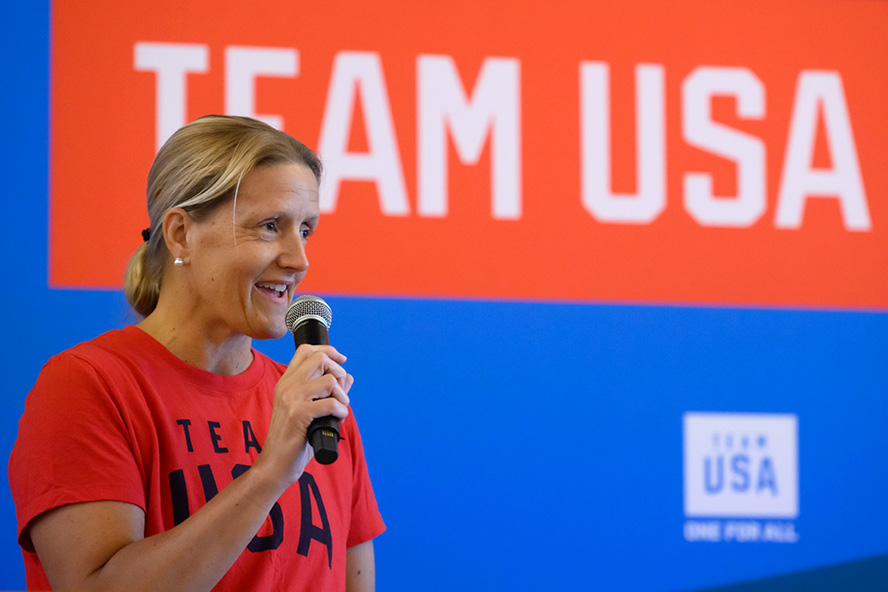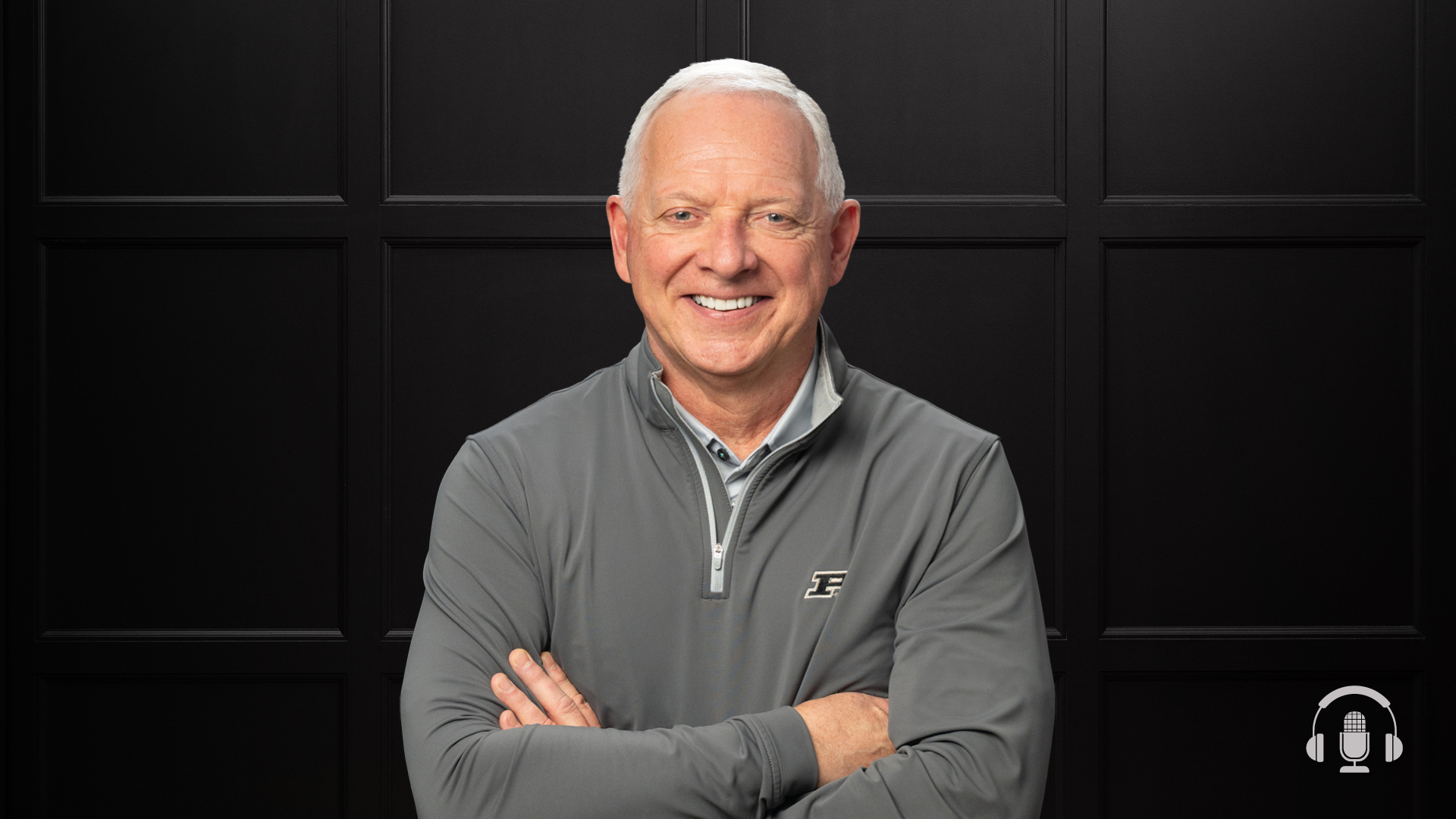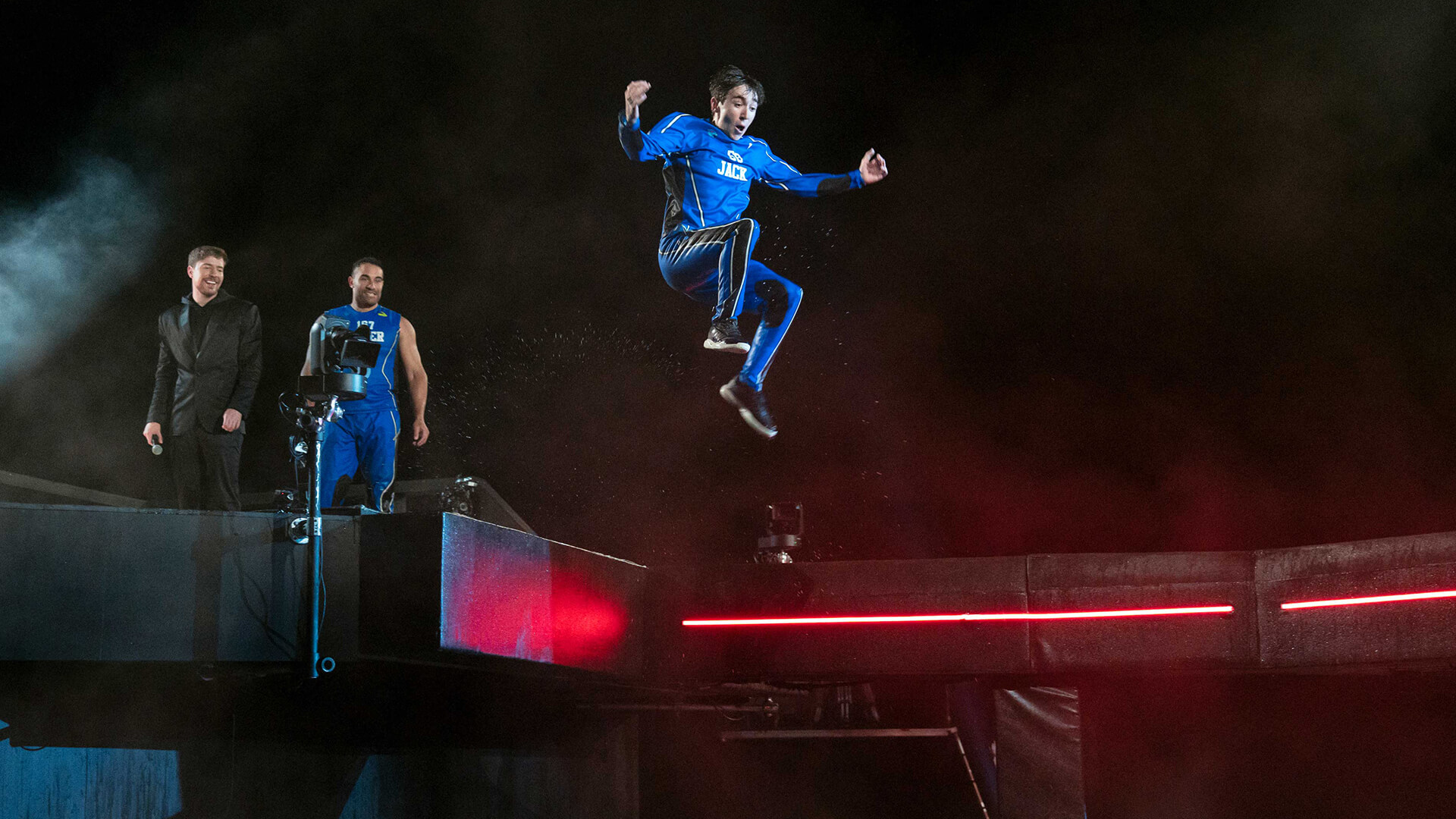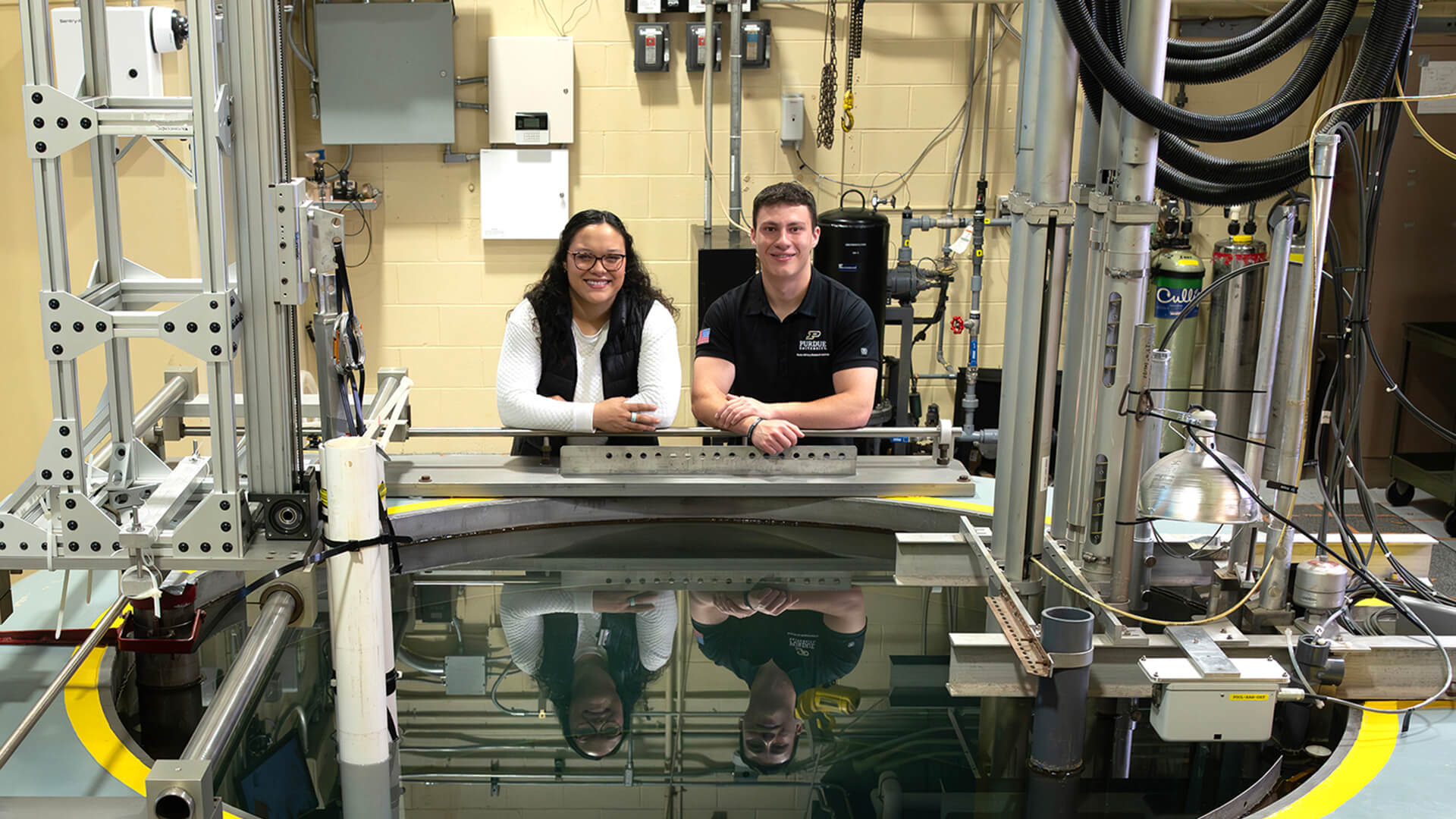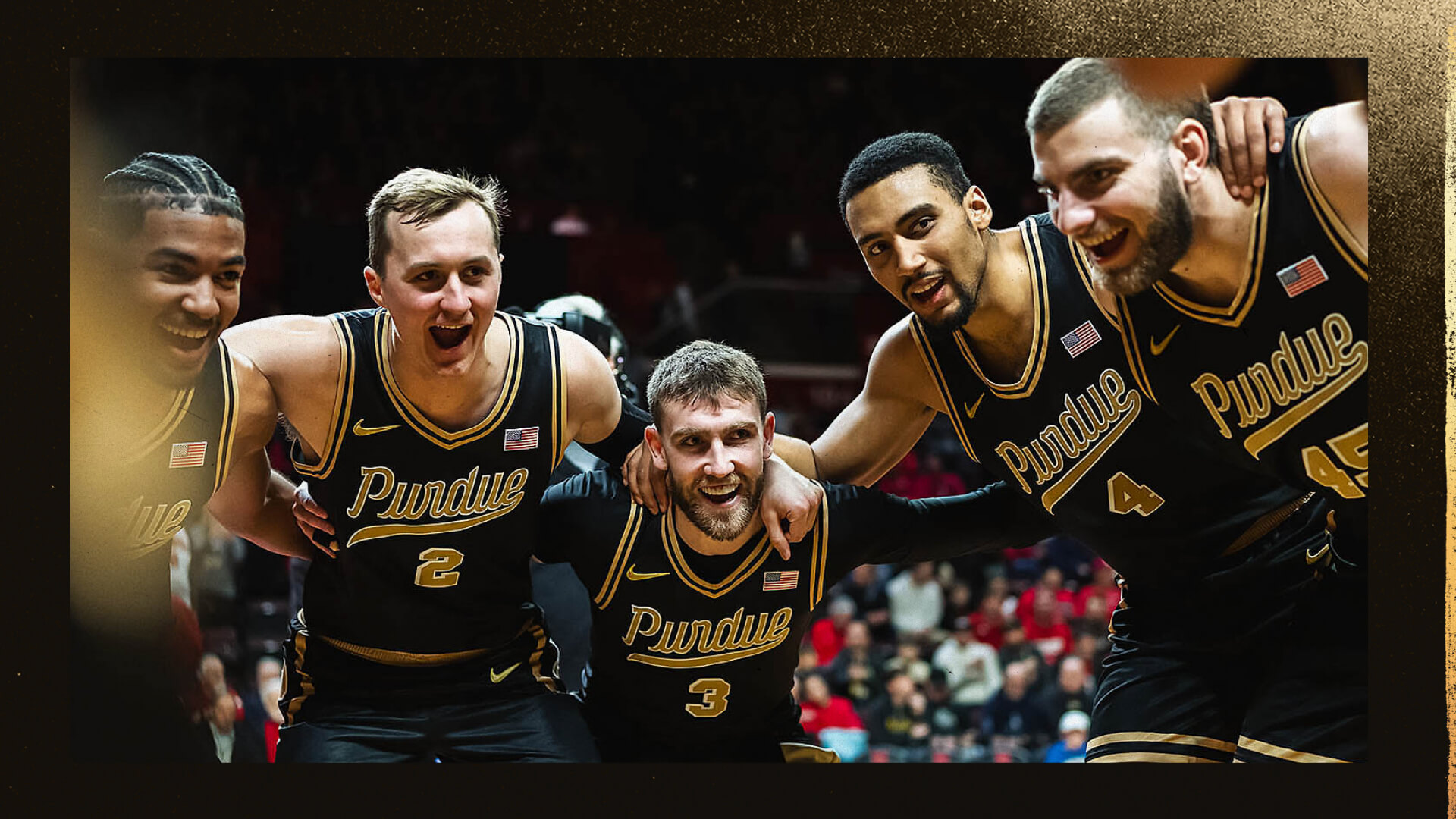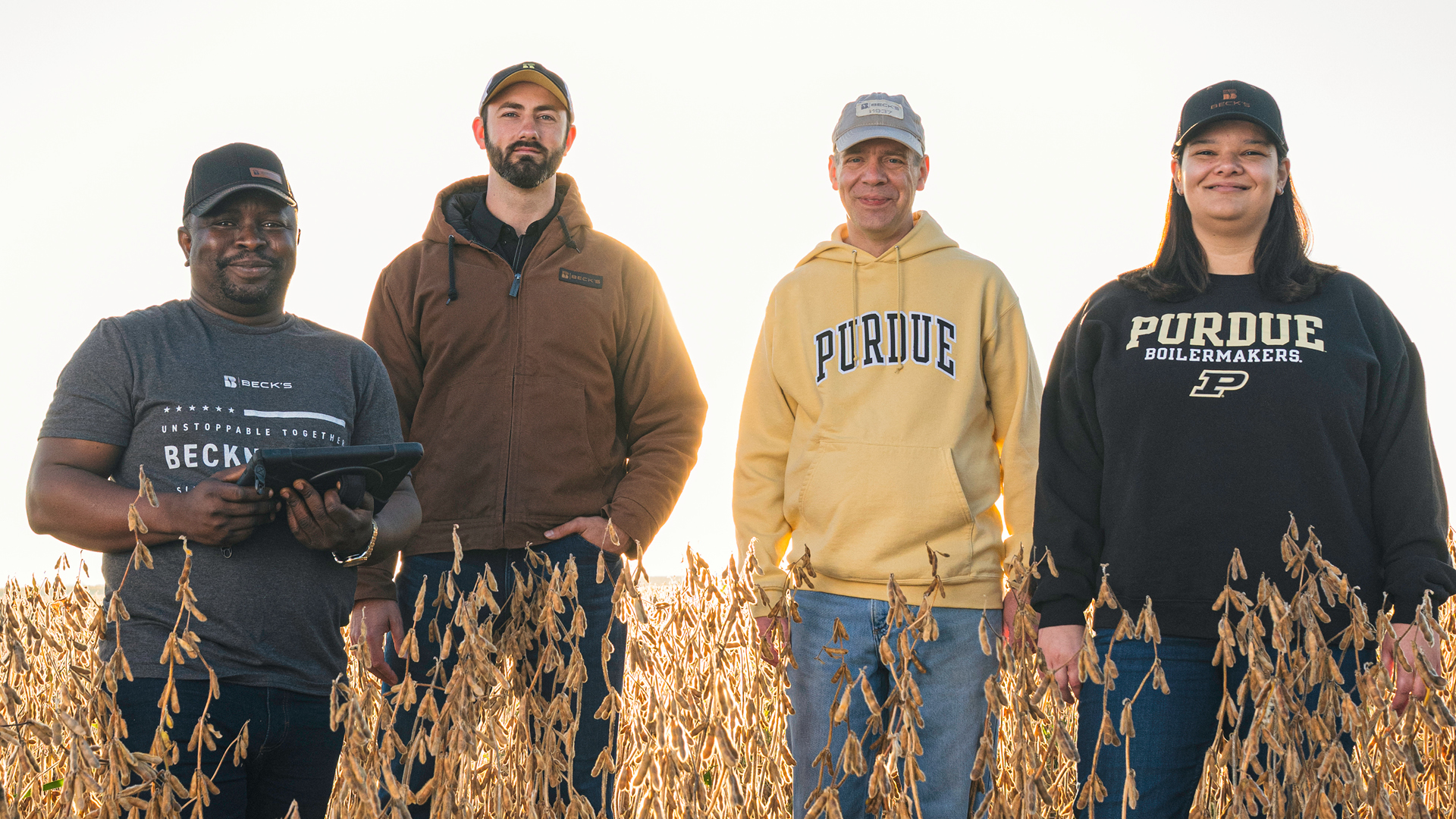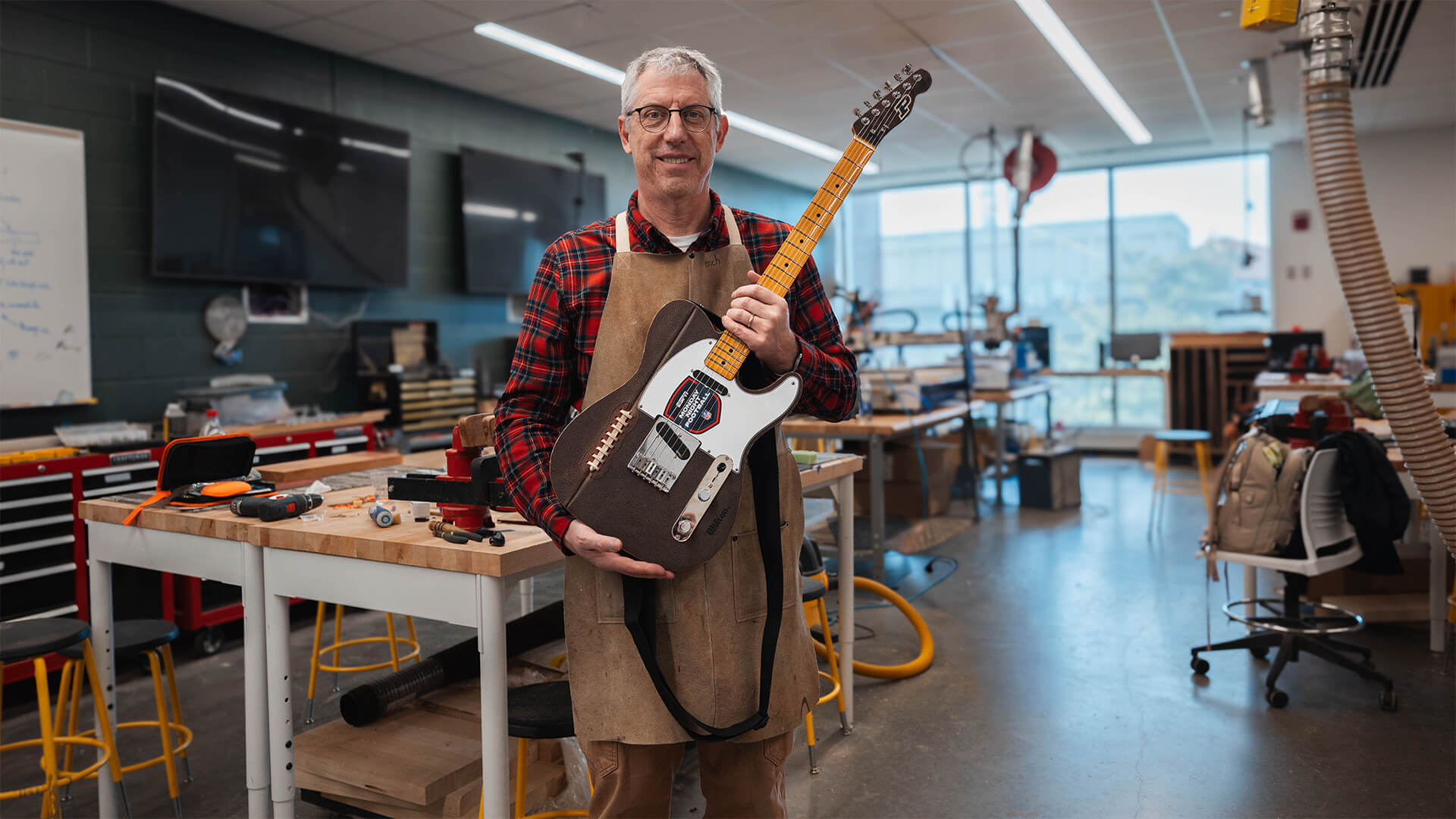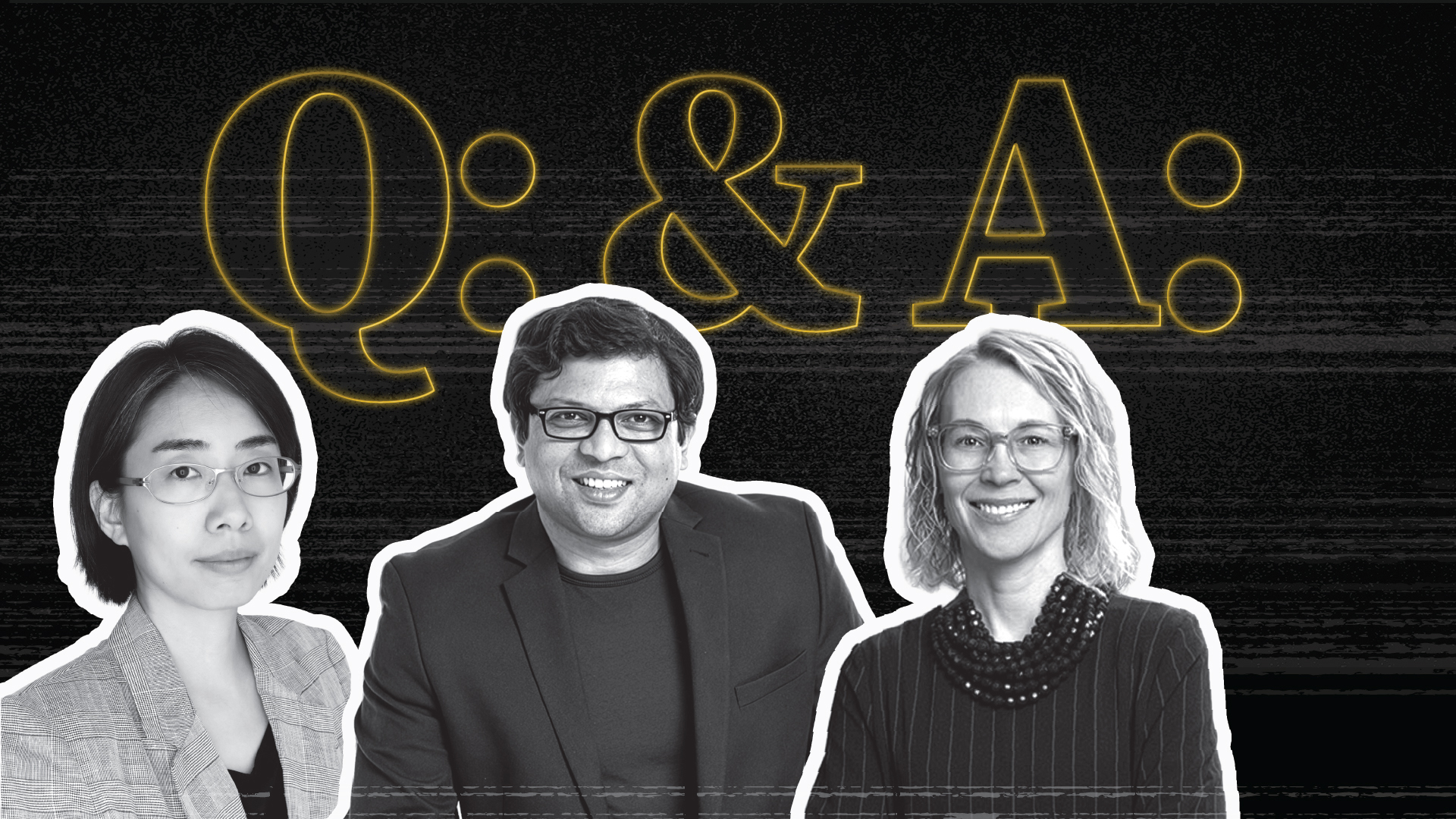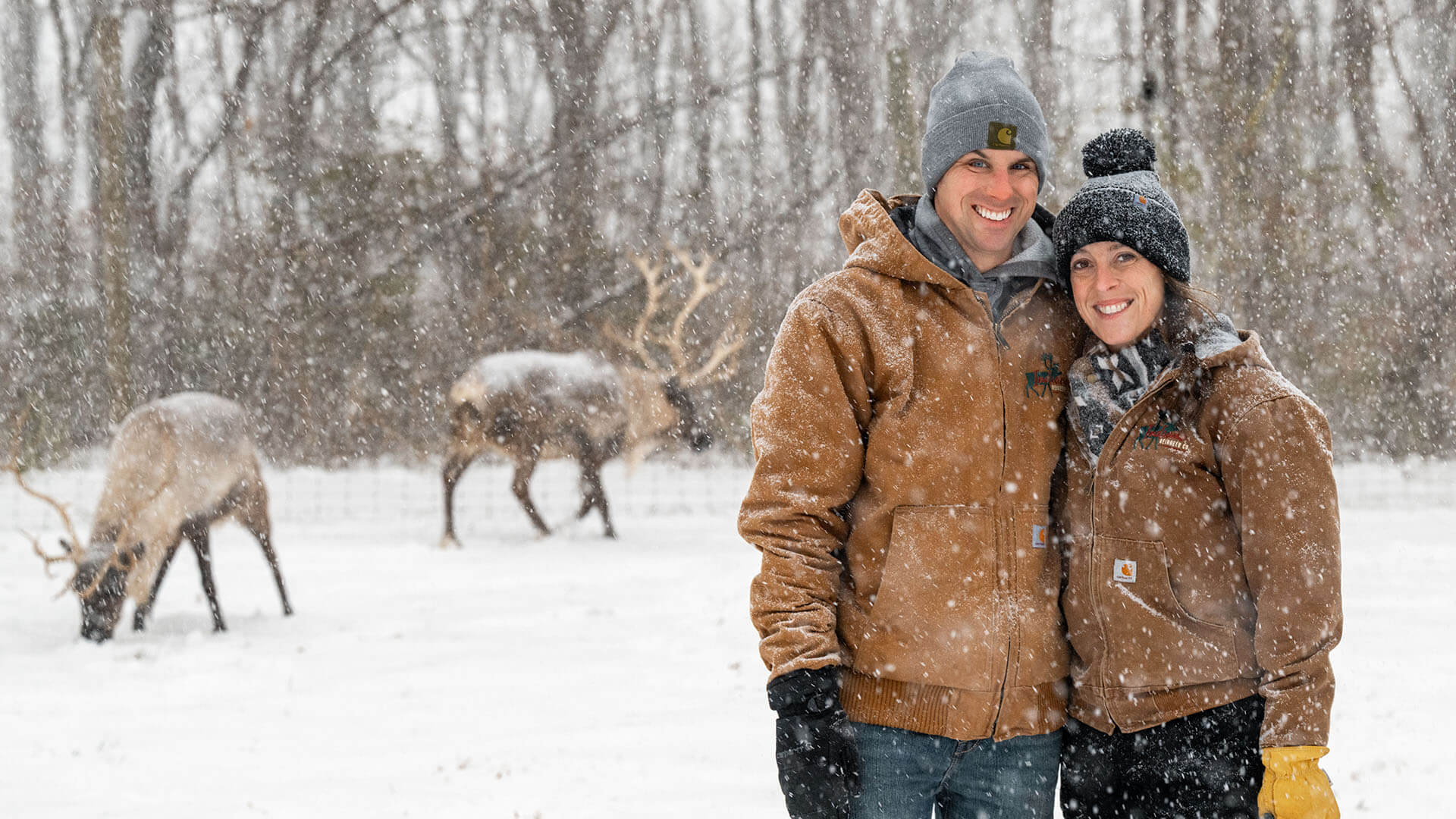Purdue alum’s unexpected path to Paralympics leadership
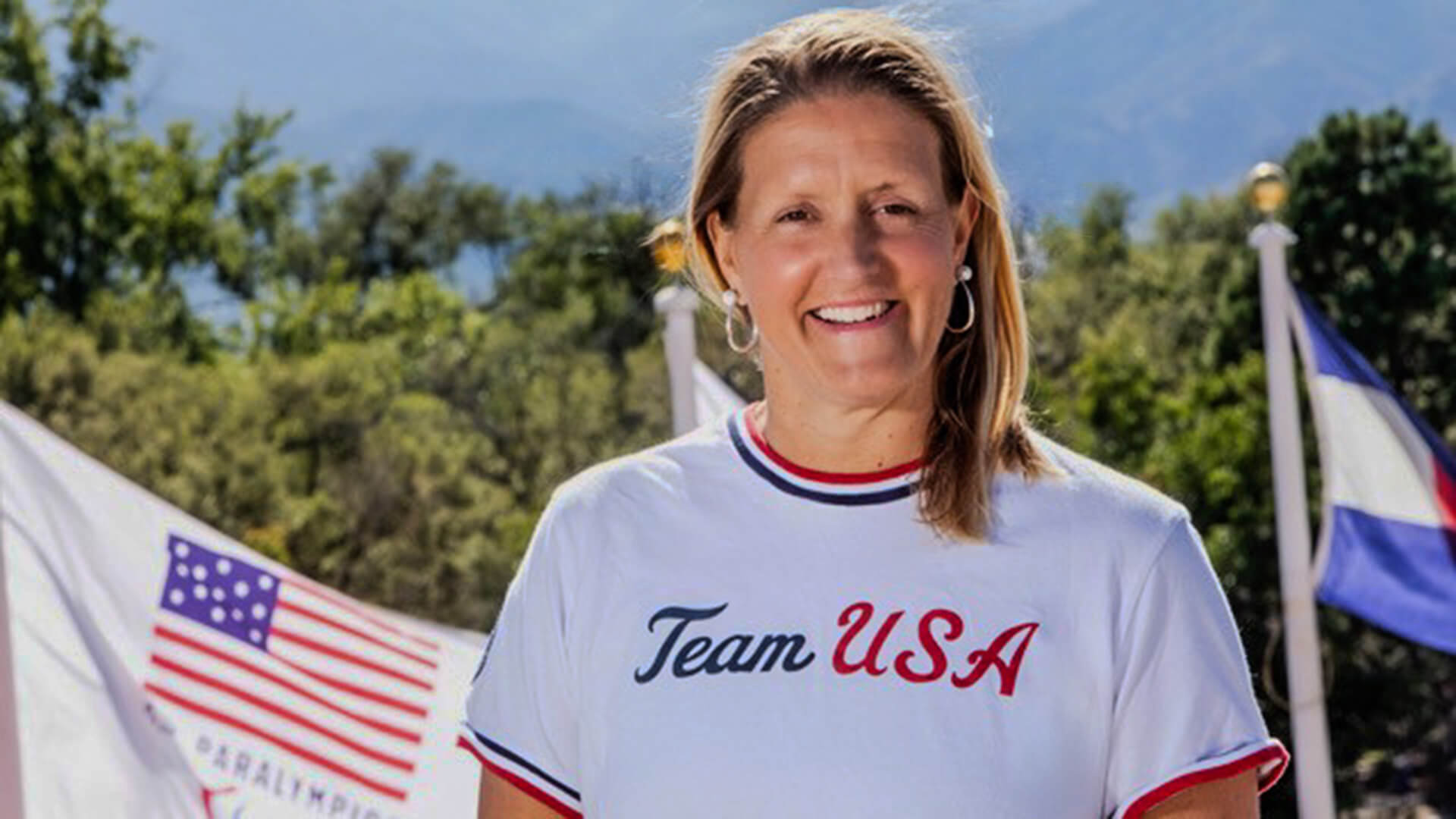
Purdue alumna Julie Dussliere is the chief of Paralympics and internally managed sports for the U.S. Olympic and Paralympic Committee. (Photo courtesy of Julie Dussliere)
Julie Dussliere planned to become a diplomat. She just didn’t expect that it would be as chief of Paralympics for Team USA.
Editor’s note: On Aug. 26, 2024, the Purdue for Life Foundation announced that alumna Julie Dussliere will succeed Matt Folk as the alumni organization’s president and chief executive officer, starting Oct. 1.
As a Purdue swimmer in the 1990s, Julie Dussliere never expected to work in sports after college.
Once she finished her bachelor’s degree, Dussliere (BA Russian ’94) intended to complete a master’s program, and then it was on to law school. International diplomacy was in her future.
And that’s what happened — just not the way she envisioned it at the time.
“I had no indication or thought that I was going to work in the sport world when I graduated. That was not the plan,” Dussliere says. “But then I ended up taking a coaching job instead, and I’ve been in the sport world ever since.”
Saying she’s “in the sport world” would be selling Dussliere a bit short, though. She is a groundbreaking administrator with the U.S. Olympic & Paralympic Committee (USOPC), the organization that oversees the Olympic and Paralympic movements in the United States.
Since joining the organization in 2003, Dussliere has filled multiple leadership roles, including her current position as senior vice president and chief of Paralympics and internally managed sports. In this job, she oversees planning and support for 28 summer and winter Paralympic sports and the operations of the 10 Olympic and Paralympic sports currently managed by the USOPC.
I’m actually doing the job I always wanted to do, just doing it in a different space than I thought I might be.
Julie Dussliere (BA Russian ’94), chief of Paralympics and internally managed sports for the U.S. Olympic and Paralympic Committee
At the 2024 Paris Games, she will serve as Team USA’s chef de mission, a chief leadership role she has held at multiple winter and summer Paralympics and Parapan American Games to ensure U.S. athletes and their coaches have the resources necessary to succeed.
And that’s only the most recent highlight in a career that certainly tests the diplomatic skills she began building as a Boilermaker student-athlete.
“International relations in the sport world is not too different from the government level,” Dussliere says with a laugh. “There’s just as much politics. It’s just in its own little space.”
A groundbreaking career
As a Purdue student, Dussliere was certain she didn’t want to teach. She remembers discussing that aversion — which made her an outlier among her classmates in the School of Languages and Cultures — in frequent conversations with her advisor, Marianne Gupta.
But guess what she loved most about her first coaching job?
“Funny enough, it was the teaching aspect, even though I had all those conversations with Marianne where I didn’t want to teach,” Dussliere says of that initial job with the USA Swimming club team in San Jose, California, which she took to fill the time between grad school and law school. “You never know until you do it.”
Indeed, she turned out to be great at it. She worked as a coach and administrator at several USA Swimming clubs over the next eight years and eventually crossed over into Paralympic coaching.
For the most part, she found that coaching athletes with disabilities was just like coaching any other athlete. The biggest difference was that it required more creativity than had been previously necessary.
“About 99% of what you’re doing is exactly the same: training, planning, physiology, biomechanics, sport-specific expertise,” she explains. “It’s taking your coaching expertise to a higher level in that you have an athlete who may not be able to do things the same way based on what the disability is, and you’ve got to get creative. You’ve got to figure out how you get the same training cycle, same training methodology and so forth.
“I would say the coaches we have in Paralympics are some of the best in the world because of that, because they’ve all moved into Paralympics at some point in time, typically based on an athlete-coach relationship where they’ve gotten involved, and they have a tendency to stay in Paralympics once they come over.”
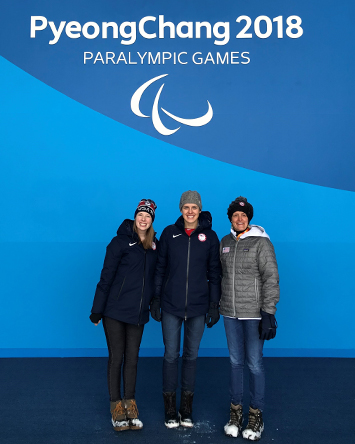
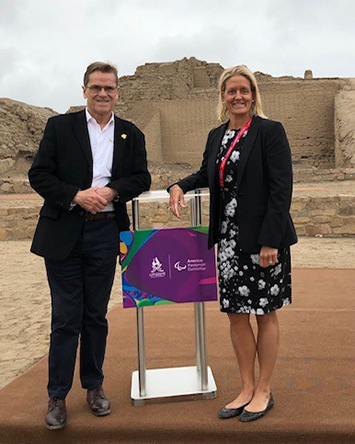
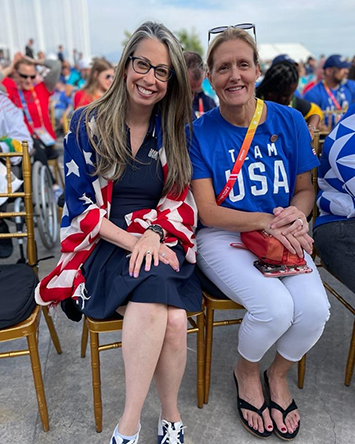
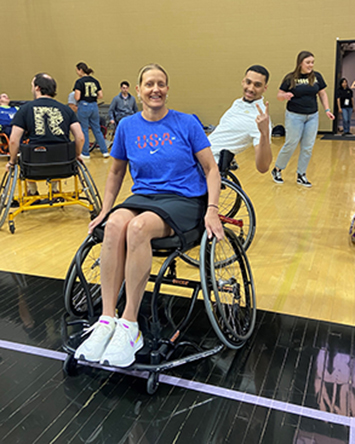
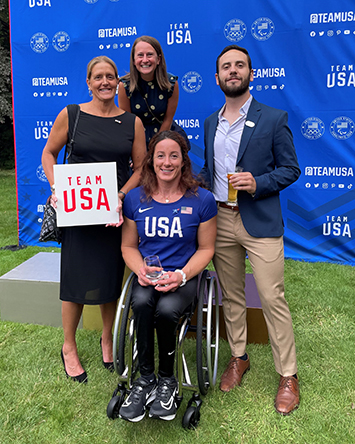
Dussliere coached in Paralympic swimming for a decade — including as an assistant at multiple international competitions — before making history as head coach of the U.S. team at the 2002 International Paralympic Committee Swimming World Championships. In that role, she became the first woman to serve as head coach for any American swimming team (Olympic or Paralympic) at a major international championship.
“It wasn’t until our communications folks looked at it and said, ‘Hey, wait a minute!’ that we realized [I was the first woman head coach],” Dussliere says. “So, it really was not a huge deal at the time, and I didn’t really think about it. I’d been on coaching staffs, knew how to lead coaching staffs. It wasn’t anything out of the norm, so to speak. But it was a big deal when we realized it afterward.”
Dussliere would break more ground as an administrator 16 years later. After serving as vice president of the Americas Paralympic Committee — one of five regional organizations that make up the worldwide Paralympic community — she was appointed in 2018 as the committee’s president. That made her both the first woman and first U.S. representative to oversee the Americas region.
It was yet another opportunity to test her skills as a communicator and diplomat.
“It required a lot of coaching skills and mentoring and leading people because doing it in that environment was very different than any other environment,” Dussliere says. “No one else on the board was from North America. I didn’t have any colleagues from the Caribbean or Canada. So, it was very Latin America-based, which made it a very interesting dynamic based on how they operate, how they do business. It was very different than how we operate here in the U.S. It was truly an exercise in international relations.”
Paying it forward
Dussliere cites her Purdue women’s swimming coach, Cathy Wright-Eger, as a strong leader who still influences her today. That mentorship benefited Dussliere in her career and inspired her to pay it forward to the students who followed her at Purdue.
She gives back whenever possible, whether meeting with Boilermaker student-athletes during campus visits, participating in the Old Masters program or reminding College of Liberal Arts students that they can do anything they want with their degree.
“Julie is a great source of inspiration for liberal arts students,” says Lori Sparger, chief operating officer in the College of Liberal Arts, who helped develop and for many years taught the SCLA 300 (Liberal Arts Influentials) course where Dussliere has appeared multiple times as an alumni guest speaker. “For most of our students, their major does not directly translate into a job title. Julie’s work for the Paralympics melds her degree in Russian and her passion for sports to provide a real example for our students to chart their own high-impact careers.
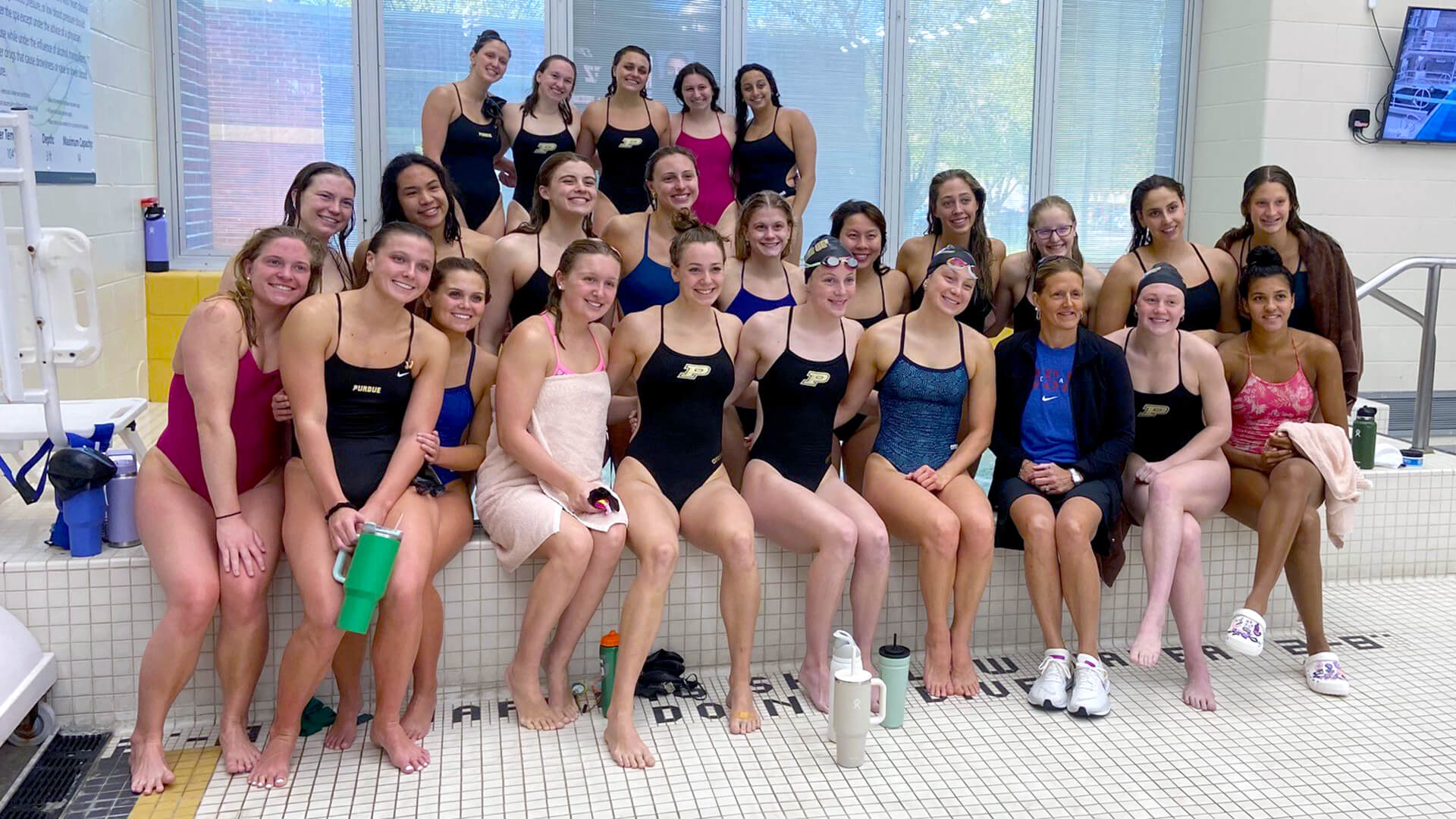
“I am very grateful that she chooses to return to campus to speak in class and provide support and guidance. When they meet people like Julie, who care about their success, our students are encouraged to pursue their boldest aspirations as they consider their professional lives after Purdue.”
Dussliere is similarly encouraging when meeting with Purdue student-athletes, like the members of the women’s swimming team with whom she has so much in common. As a former Boilermaker competitor herself, her words have special resonance when discussing topics like the importance of time management in establishing necessary work-life balance.
According to Purdue women’s swimming and diving coach John Klinge — Dussliere’s contemporary as a Boilermaker swimmer in the early 1990s — it’s a perfect example of how an active alumni base can benefit today’s student-athletes.
“There’s a couple of really good things,” Klinge says. “It’s a highly successful woman — so she’s a really, really good role model for our team — but it’s also someone who was in their shoes not too long ago and can maybe offer a little advice on succeeding in just about any field.”
Dussliere’s reason behind staying involved is simple: “It’s because of the Purdue family” that influenced her and helped shape the accomplished professional she would become.
“You get to the point where, whether you’re giving back in terms of philanthropy or time or other types of resources, it’s just important,” she says. “Purdue was a big part of my life for obvious reasons, and I just love staying involved on campus.”
‘One of my idols and mentors’
Sometimes opportunities to support other Boilermakers emerge in unexpected ways, as well.
Former Purdue women’s basketball player Léony Boudreau (BS biomedical engineering ’21, MS biomedical engineering ’22) was completely unaware of the Boilermaker connection she shared with Dussliere until she first prepared to reach out to the U.S. Paralympics chief about an adaptive sports student organization Boudreau co-founded at Purdue. But once they made contact, Boudreau quickly began to view Dussliere as someone she now calls “one of my idols and mentors.”
“I did a little bit of research on Julie, and I was like, ‘Oh my gosh, she’s a Purdue alum and she’s so involved with athletics,’ so I reached out to her,” Boudreau says. “Honestly, the first time I reached out to her, you know those people you connect with right away? She was so fantastic and so generous with her time. It was kind of history from there.”
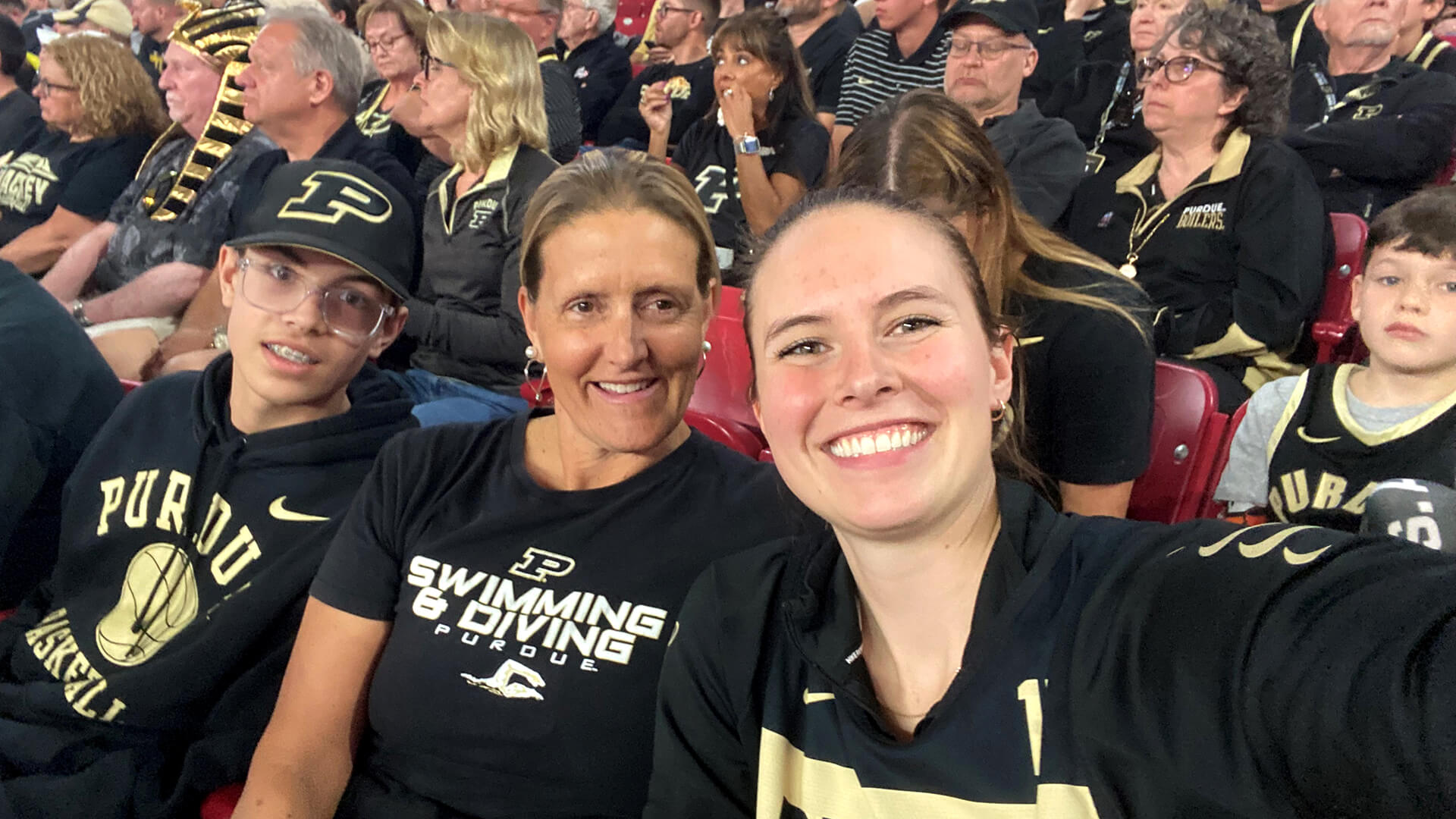
Dussliere continues to support that student organization — RIISE (Reinventing the Interface of Inclusivity, Sports, and Engineering) — which Boudreau co-founded with Shelby Gruss (PhD plant breeding and genetics ’21), a former captain of the U.S. women’s wheelchair basketball team, and a group of Purdue students inspired by their opportunity to make an impact within the Paralympic Movement. Dussliere even traveled to campus in April to attend the third annual Wheel RIISE event, which aims to raise community awareness of adaptive sports and highlight the connection between engineering and athletics.
“Even with her stature and all of the impact and power that she’s gained over the years, she’s one of the most humble people I know and one of the most authentic people I know,” Boudreau says. “I had so much fun with her when she came on campus. She’s definitely an incredible advisor for RIISE and a fantastic mentor for me personally.”
The impact of successful alums like Dussliere was so important during Boudreau’s student-athlete journey that she now also aspires to be a positive influence for current and future Boilermaker competitors.
“Having somebody like Julie stepping in while I was still an athlete at Purdue was huge,” she says. “It opened my eyes on all the other things that are happening in life and all of the impact that you can bring as an athlete to use your platform to just expand your impact broader than your own performance as an athlete.”
Focus on Paris Games
For the next several weeks, though, Dussliere’s primary focus is athlete performance. Team USA, which will compete in the Summer Paralympic Games between Aug. 28 and Sept. 8, includes two athletes with Purdue ties: team captain Evan Austin, a former volunteer assistant coach with the women’s swimming team who still trains at the Morgan J. Burke Aquatic Center, and men’s track and field senior Joel Gomez.
She has supported thousands of successful American athletes through the years and looks forward to seeing many more bring medals home from Paris this summer. No matter how many international competitions she attends, that excitement never gets old.
“It’s about our Team USA athletes getting out there on the field of play and doing what they’ve been training eight, 12, sometimes 20 years to do,” she says. “And just being there to support them and provide them with the support they need to get out there and do their best.”
In two decades at the USOPC, Dussliere has played a direct role in the tremendous growth of international Paralympic competition in athletic performance, participation and visibility. So, while her current occupation might not be the diplomatic role she pictured as a Purdue student, many athletes across the globe — especially those in her home country — have benefited from the way her plans evolved.
“I’m actually doing the job I always wanted to do, just doing it in a different space than I thought I might be,” Dussliere says. “This is a very, very good use of a lot of the big international relations focus from back in my Purdue days.”
I had no indication or thought that I was going to work in the sport world when I graduated. That was not the plan. But then I ended up taking a coaching job instead, and I’ve been in the sport world ever since.
Julie Dussliere (BA Russian ’94),
chief of Paralympics and internally managed sports for the U.S. Olympic and Paralympic Committee
